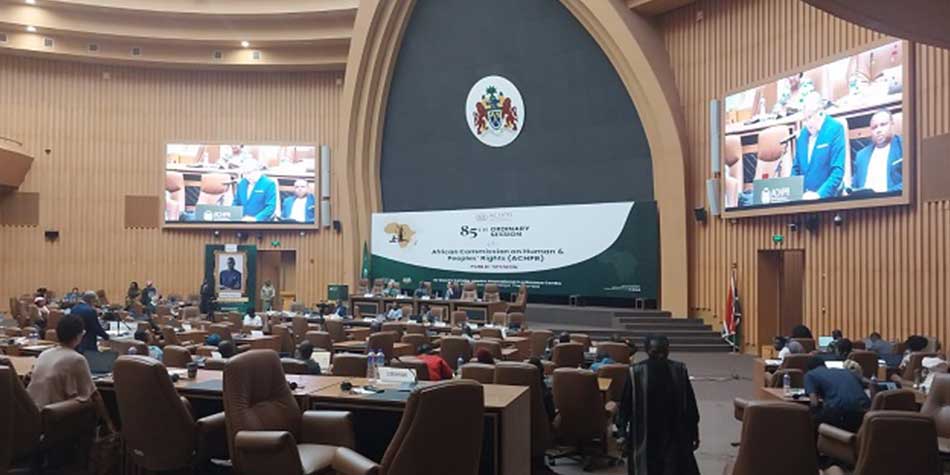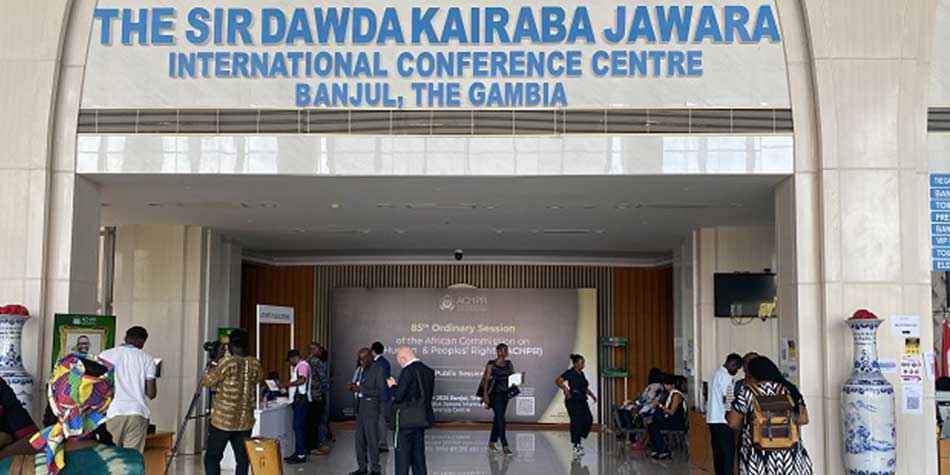
Abolition of the death penalty at the United Nations Human Rights Council 55th session
International standards
The United Nations Human Rights Council met for its 55th Regular Session from February 26 to April 5, 2024. If you missed it, here is what happened regarding the abolition of the death penalty!
During the debates
During the Interactive Dialogue with the Independent International Fact-Finding Mission on the Islamic Republic of Iran on March 18, Chairperson Sara Hossain, denounced the use of the death penalty by Iranian authorities against protested. She noted that “at least nine young men were arbitrarily executed, following hasty and flawed proceedings that disregarded basic fair trial and due process guarantees, creating terror among other protestors.” She highlighted this by January 2024, at least 26 death sentences had been imposed against persons in relation to the protests. Watch the statement here.
During the General debate on the oral update by the High Commissioner for Human Rights, Switzerland expressed its regret at the execution by suffocation using nitrogen gas in the United States reiterated its categorical opposition to death penalty everywhere in all circumstances. Australia welcomed Ghana and Malaysia’s progress towards abolishing the death penalty, but expressed its concern about the criminalization of same sex relations with offenses punishable by death in some countries including Uganda and Yemen. The EU reiterated its call on Egypt to suspend executions as a first step towards abolishing the death penalty. Watch the statements here and here.
The Council adopted a resolution (A/HRC/55/L.24) on the Situation of human rights in Belarus by a vote of 24 in favour, 6 against and 17 abstentions. In it, the Council urges the Belarus government to comply fully with all their obligations under international human rights law, and to “relaunch a national dialogue on a moratorium on the death penalty and its eventual abolition.”
In his report (A/HRC/55/62), the Special Rapporteur on human rights in the Islamic Republic of Iran, Javaid Rehman, raised concerns about the recent rise in death sentences and executions. According to his findings, executions in 2023 increased by 43% compared to 2022, with more than 56% of those executed in 2023 facing charges related to drug offenses. During the Interactive Dialogue with the Special Rapporteur, multiple Members States made statements denouncing Iran’s use of the death penalty and rise of executions, including Argentina, Australia, Albania, the EU, France, Luxembourg, Moldova, Montenegro, Romania, with some of them calling for an immediate moratorium on executions. Belgium specifically denounced the use pf the death penalty for drug-related offences and called upon Iran to limit the use of the death penalty to the most serious crimes. They also called upon Oiran to respect its obligations under the Convention for the Child and to stop the use of the death penalty against minors. Watch the statements here.
CIVIL SOCIETY ORAL STATEMENTS ON THE DEATH PENALTY
On the occasion of this 55th session, several members of the World Coalition against the Death Penalty presented oral statements on the death penalty.
During the adoption of the Universal Periodic Review Outcome of Bangladesh, the International Federation for Human Rights Leagues denounced that the government of Bangladesh did not accept any recommendations that relate to death penalty and its abolition, and “shockingly described” capital punishment as “as a valid form of punishment and deterrence.” Amnesty International also regretted that the “government has not accepted recommendations to abolish the death penalty.” Watch the oral statements here.
During the adoption of the Universal Periodic Review Outcome of Cameroon, the FIACAT and ACAT Camerron welcomed the commitment undertaken by Camerron at 75th anniversary of the Universal Declaration of Human Rights to ratify all treaties protecting to human rights. They encouraged Cameroon to implement this commitment by ratifying the Second Optional Protocol to the ICCPR aiming at the abolition of the death penalty and by commuting all death sentences. They also highlighted the need to combat prison overcrowding by choosing alternate sentencing, and to improve prison conditions by guaranteeing medical care and adopting a special regime for vulnerable people, and separating prisoners based on age, gender and status. Watch it here.
On February 5th, the Human Rights Council conducted an intersessional panel discussion titled “Human Rights Challenges in Addressing and Countering All Aspects of the World Drug Problem,” in preparation for its 55th session. During the event, the High Commissioner presented key findings from the report, emphasizing the impact of drug policies on issues such as the use of the death penalty and overincarceration. Harm Reduction International delivered an oral statement, highlighting that there had been a “devastating unravelling of progress on abolition of the death penalty” in 2023 and that HRI’s global mapping of the situation will report the “highest figure in eight years, with almost one in every two people executed in the name of drug control.”
During the Interactive Dialogue on the High Commissioner’s oral update on Myanmar, the IBAHRI condemned the ongoing atrocity crimes committed by the junta in Myanmar and called for a moratorium on the death penalty. Watch the statement here.
RESOLUTIONS ADOPTED
The Human Rights Council adopted 32 resolutions and 16 decisions.
SIDE EVENTS
One side event was organized by members of the World Coalition Against the Death Penalty.
A side event was co-organized on March 14 by Ensemble Contre la Peine de Mort, Iran Human Rights and other NGOsabout the situation of human rights inthe Islamic Republic of Iran.
The 56th regular session of the Human Rights Council is scheduled to take place in Geneva from June 18 to July 12, 2024.
Categories
Trend Towards Abolition





